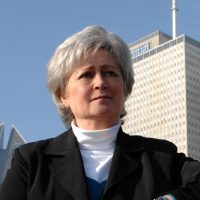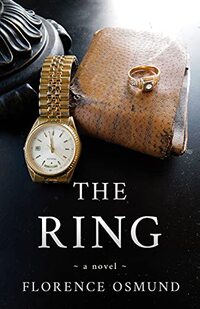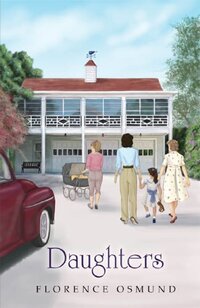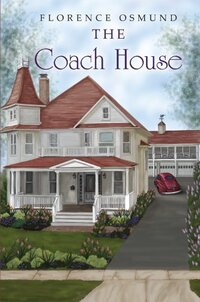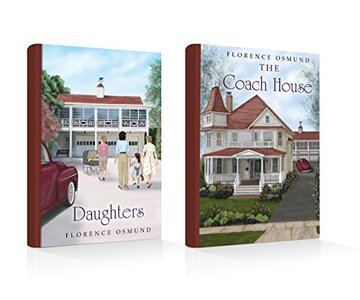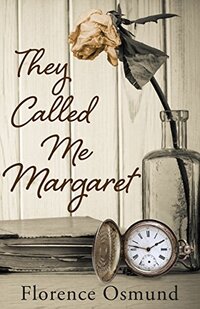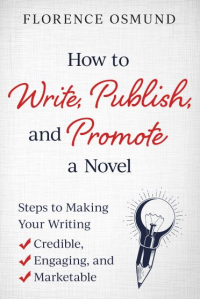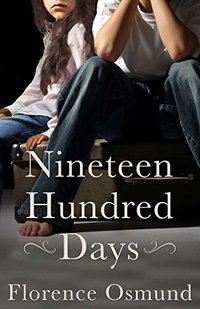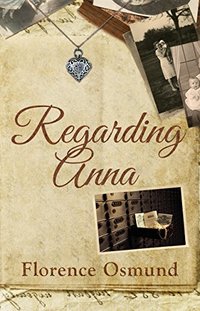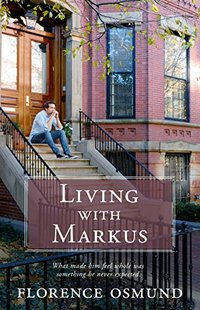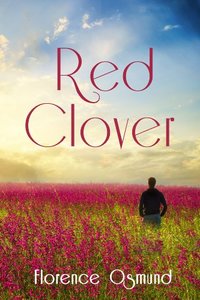Florence Osmund Interview Published on: 19, Aug 2021
 Where have you spent most of your childhood?
Where have you spent most of your childhood?
I grew up in a small town, forty miles north of Chicago, in much simpler times. Playing outdoors, Sunday car rides, hula hoops, Lincoln logs, I Love Lucy, American Bandstand, and Happy Days. Ah the memories.
Were your family ever skeptical of your dreams of writing? Who has been your greatest supporter?I actually never told anyone about my plans to write novels in my retirement years. I kept that to myself, just in case my life took a drastically different turn. After learning of my dream to write, my family was (and still is) very supportive. My sister is my primary Beta reader.
What inspired you to start writing novels after a long career in the corporate world?One of the activities I loved doing in my various corporate positions was writing—correspondence, proposals, reports, opinion papers, handbooks, you name it. While doing this, it occurred to me that if I could make stuff up along the way to make the content more interesting, it would be even more enjoyable, and I knew writing fiction would enable me to do just that.
What have been your most valuable out-of-school learning experiences?The best advice I can give to a new author is to read everything you can in your genre before you start writing. It is important to understand what works and what doesn’t work for comparable authors. If you fail to do this, you risk spending valuable time and money creating something that isn’t marketable. Learn from others.
What fears did you have while publishing your first novel?My biggest fear was that I wouldn’t be able to find an agent to represent me. And this, in fact, turned out to be the case. But I had written my first book so badly that, looking back, no wonder no one wanted it. I wound up rewriting it (into two books) after I realized the errors I had made and self-published both of them. I think they call this the “school of hard knocks.”
What was the hardest part of writing your book, "How to Write, Publish, and Promote a Novel"?The most challenging part of writing this book--the section that took the longest and required the most rewrites--was the discussion about the self-publishing industry. My research revealed significant disagreement in the industry in the various definitions of each aspect of the process, making it difficult to include much detail without contradicting some other source. Not wanting to confuse a new writer, I struggled to keep it simple but still informational.
How did you come up with the idea of your novel, Daughters?Originally, I wrote one book titled “The Coach House.” I wrote this book without the benefit of any prior experience or training. When an editor looked at it and told me I had violated just about every writing rule known to man, I took time to educate myself on the finer points of writing fiction and rewrote it. It became two books, and that was how “Daughters” was born. I came up with ideas for my first five novels from years of jotting down potential story and character concepts and storing them inside a shoe box until I was ready to write after retiring from the corporate world. When that time came, I dumped the contents of the shoe box on the table, categorized each idea, and put them into piles…five of them.
Who inspired the character of Marie in "The Coach House"?Other people have asked me this question, and I never know quite how to answer it. I believe inspiration for all my characters comes from my own personal experiences. While I have never known anyone just like Marie, I am sure I know a variety of people with certain aspects of her personality, including myself. I suppose I unconsciously drew from this experience.
What is the significance of the title of your novel, Nineteen Hundred Days?Without creating a spoiler here, it is in part a tribute to the main character’s best friend, Will.
What is the sweetest fan-mail that you have ever received?If you allow me to substitute the word “sweetest” with “rewarding,” it was when someone told me he couldn’t finish the book because of what the main character was going through. Apparently, it brought up too many memories and emotions from his own childhood. While I was sorry he wasn’t able to finish the book, apparently I had adeptly conveyed something closely related to his real-life experience-- something to which he could relate, something that elicited raw emotions--which is key to writing successful literary fiction.
How do you keep yourself motivated and keep the dreaded writer's block from attacking?Writing and finishing a book can take an immense amount of discipline. Fortunately, I’ve never had “writer’s block.” Quite the contrary, my problem is that I have too many ideas running through my head and too little time. This is why I write ideas down when they come to me. My brain can hold only so much.
What do you enjoy the most about living on the tranquil lake in northern Illinois?Living on the water is peaceful, relaxing, and inspirational. And it attracts wonderful wildlife which I so enjoy. I have a large willow tree near the water that has had a wide array of visitors—eagles, hawks, herons, osprey, and an occasional pair of wood ducks. Land animals include beavers, muskrats, rabbits, opossum, raccoons, deer, and skunks.
What kind of audience do you hope to appeal to with your books?I strive to write stories about characters having to make tough decisions, ones that make readers think about what they would do in a similar situation. Originally, I thought my audience would be older women, and perhaps they are the largest segment of my fans, but surprisingly, I have a generous following of adult men and young adults as well.
What are your plans for the future as a writer? Are you working on anything new?I am currently taking a break from writing due to some personal business that requires my attention, but I am ready to start my next novel as soon as I am able.
How long on average does it take you to promote a book? How has been your experience working with AllAuthor?I have a rather long checklist for launching a new book, and it takes a solid month to carry out all of it. But book promotion doesn’t stop with a launch—most authors must continually promote their work to maintain exposure and obtain sales. AllAuthor is a great resource for this with a substantial store of promotional tools that help us connect our books with the right readers. The AllAuthor staff are creative and know their way around social media. Their artistic creations free up time for us, time that we can devote to other things. My experience with AllAuthor has been nothing short of positive.
Share Florence Osmund's interview
Florence Osmund grew up in a small town, forty miles north of Chicago, in much simpler times. She retired to write novels, something she had been thinking about doing her whole career. Inspiration for all her characters comes from her own personal experiences. She currently lives on a tranquil lake in northern Illinois.
